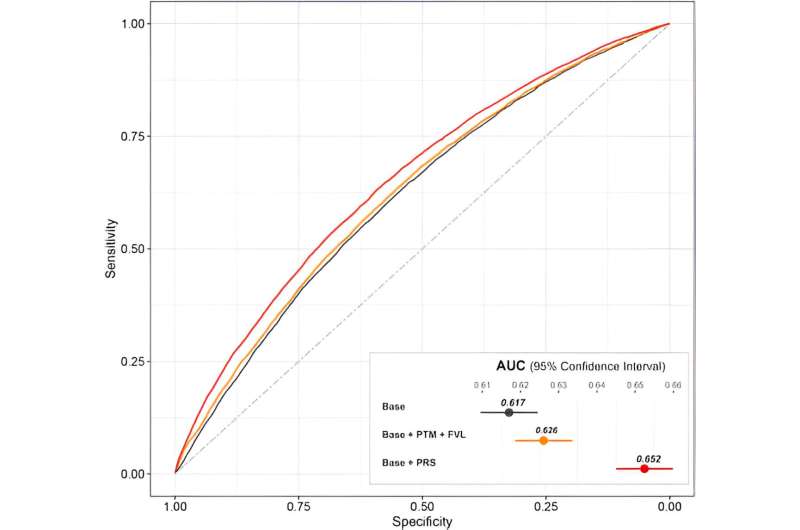Genetics influence the risk of blood clots in oral contraceptive users, study finds


Women with a high genetic predisposition for blood clots are six times more likely to develop a blood clot during the first two years of using contraceptive pills according to a new study from Uppsala University. The results have been published in the American Journal of Obstetrics and Gynaecology.
“This is important knowledge for women’s health and may be important in contraception counseling,” says Valeria Lo Faro, postdoctoral researcher at the Department of Immunology, Genetics and Pathology at Uppsala University and one of the researchers behind the study.
The use of combined hormonal contraceptive pills has already been linked to an increased risk of blood clots. The World Health Organization, for example, has warned that the contraceptive pill poses an unacceptable health risk for women who carry known mutations linked to hereditary thrombophilia, a condition where the blood coagulates too readily.
Today, researchers know that the risk of blood clots is influenced by a large number of genes in addition to the known mutations, and that collectively these genes increase the person’s total risk. Today, you can measure genetic risk at the individual level using simple, inexpensive methods and summarize it in the form of a genetic risk score. A higher genetic risk score is indicative of multiple genetic risk factors, while a lower genetic risk score means a smaller genetic risk.
“To study the link between a person’s genetic risk of blood clots and their use of contraceptive pills, we investigated data from 244,420 British women from the UK Biobank. We found that for women with a high genetic risk score, their risk of blood clots during the first two years of using contraceptive pills was six times greater than for women with a low genetic risk score,” says Valeria Lo Faro.
This knowledge could be used to identify women with a high risk of blood clots. They can then be counseled on alternative methods of contraception that do not endanger their health.
“Genetic risk profiles for many common diseases can now be determined all at the same time, for example, from blood tests taken at birth. We predict that this type of genetic risk projection will play an important role in counseling and risk predictions in the future,” says Åsa Johansson, Associate Professor at the Department of Immunology, Genetics and Pathology, and at SciLifeLab, Uppsala University.
More information:
Valeria Lo Faro et al, The risk of venous thromboembolism in oral contraceptive users: the role of genetic factors—a prospective cohort study of 240,000 women in the UK Biobank, American Journal of Obstetrics and Gynecology (2023). DOI: 10.1016/j.ajog.2023.09.012
Journal information:
American Journal of Obstetrics and Gynecology
Source: Read Full Article